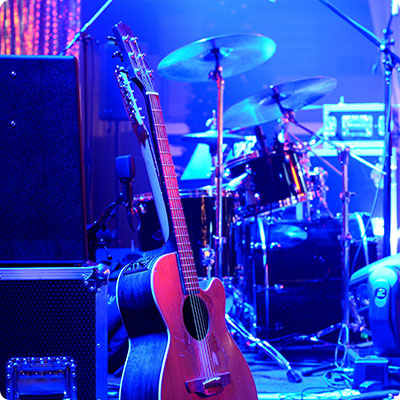Living conditions
They are rather difficult and are today the main cause of the population exodus and demographic decline. Bosnia and Herzegovina is the sixth poorest country in Europe in terms of GDP per capita. In 2022, the unemployment rate was 16% (37% among young people), while the average monthly salary was €564. This compares to €1,789 in France. However, the cost of living here is on the whole half as high. Bosnians also benefit from relatively efficient medical and social institutions inherited from socialist Yugoslavia. Despite the exodus of doctors and a lack of equipment, the health care system still provides a quality of care well above the world average. The average life expectancy is 77.2 years compared to 81.3 years in the European Union. As for the GDP growth rate, it has been more than 3% per year since 2015, except in 2019 (- 3%) due to the Covid-19 crisis, but this has been made up for by an increase of 7% in 2021. However, 17% of the population lives below the poverty line. The majority of the population has to fend for itself to survive. Thus, during the long, cold winters, firewood remains the main fuel, including in the large cities. This explains, in part, the very high pollution in Sarajevo.
Lifestyles
In a country that is still very rural (only 50% of the population lives in cities), the old traditions are still very much alive. Of course, the 1992-1995 conflict, the sustained contacts with the diaspora settled in the West and the new technologies have disrupted the way of life. Thus, since the war, the regrouping of communities in distinct geographical areas has almost completely eliminated the ancestral komšiluk, the art of coexistence between Bosnians, Bosnian-Serbs and Bosnian-Croats within a village or a neighborhood. But in general, the oriental influences inherited from the Ottoman period remain: the word of the elders and the religious authorities is respected, families like to walk in the evening on the corzo (main pedestrian street of the Balkan cities) and to meet around big tables for long and animated meals, they take time to discuss between colleagues or friends around a coffee, they help each other for the work in the fields, etc. All this may seem a bit cliché, but it is nevertheless a reality. Just as real is the attraction for modernity. The gleaming shopping malls in the main cities, the prominence of social networks and the televisions that are on everywhere showing the Premier League games or the latest videos of Beyoncé, Dua Lipa and The Weeknd are all evidence of this. At the same time, nostalgia takes center stage. In 2017, according to a Gallup poll, 77% of Bosnians said they regretted the days of socialist Yugoslavia. A "Yugostalgia" that manifests itself in the décor of many restaurants and bars, such as Caffe Tito in Sarajevo. The inhabitants also fantasize about more distant times. Since the 2010s, the "folk village"(etno that) has been in vogue: all over the country, recreation areas are recreating traditional 18th- and 19th-century dwellings around a restaurant or hotel. But this phenomenon cannot make us forget the authentic old villages that are emptying because of the war, the exodus of the populations and the disinvestment of the State in the rural areas.
The place of women
Bosnian society is very patriarchal with strong inequalities between men and women. The latter had however benefited from great progress during the period of socialist Yugoslavia. But the 1992-1995 war changed all that: while the different communities were grouped around a conservative vision of religion, some of the men who had fought captured the positions of economic and political power. Women were weakened by the conflict: many were left alone and unemployed, and rape was systematically used as an instrument of terror by the Bosnian Serb forces. Even today, women are more affected by unemployment: only 40 percent of women are gainfully employed, compared to 65 percent of men. Access to the labor market is made difficult by the lack of childcare facilities for young children. To remain competitive, many women give up having children. The fertility rate is the lowest in the Balkans: 1.24 children per woman in 2020. Moreover, according to an OSCE study published in 2019, 48% of Bosnian women say they have already been victims of sexist or sexual violence. While this figure is alarming, it is lower than in most countries in the region (67 percent in Albania and 64 percent in Serbia, for example). This is partly due to better protection by institutions. As part of the EU accession bid, the country adopted a law on gender equality in 2003 and another against discrimination against women in 2016. On the political front, the 2003 law requires a minimum of 30 per cent female candidates for election. However, women account for only 17 per cent of elected officials.
Sexual minorities
You have to put your prejudices aside: it is in the largest Muslim city in the country that the LGBT+ community can show itself. Sarajevo is not San Francisco, but sexual minorities are more tolerant here than in Banja Luka or Mostar. It was in the capital that the first "pride march" was organized in Bosnia and Herzegovina with 2,000 participants in September 2019. Certainly, the cancellation of this one in 2020, because of Covid-19, had been greeted as "a gift from Allah" by the grand imam of the Islamic community. But the event is now taking place (in June) peacefully without provoking too many shocking comments. In the rest of the country, the community keeps a low profile. Everywhere, discrimination remains common. However, this has been punishable by law since 2003. There is also a law on hate crimes including gender identity and sexual orientation since 2016. Homosexual relations were decriminalized by the Yugoslav state in 1971, eleven years before France. In 2022, the national parliament was preparing a law to provide new rights and better protection for the LGBT community. The bill provides for legal status for same-sex couples and assistance for people who wish to change their gender. In general, non-heterosexual tourists are advised not to be open in public spaces, especially in the Serbian Republic of Bosnia where the Serbian Orthodox population is the least tolerant. Finally, while there are no bars or discos in the country displaying the rainbow flag, some venues regularly host LGBT parties in Sarajevo.
Freedoms
The legislation guarantees individual freedoms. But several international reports point to serious problems. The U.S. State Department has pointed to serious abuses by the police, a lack of judicial independence, violations of the rights of women, children and minorities, and threats and violence against journalists. Foreign observers note, however, that there is great disparity among the entities. It is mainly in the Bosnian Serb Republic that abuses are noted. There, "autocratic drift" by the local president, Milorad Dodik, and his ultranationalist party, SNSD/СНСД (Alliance of Independent Social Democrats), is deplored. This translates into heavy police repression towards opposition groups and frequent identity checks for no apparent reason - we have experienced this several times. As for the entity's influential public broadcaster, RTRS/РТРС, it presents the news according to Milorad Dodik's views. In the Reporters Without Borders World Press Freedom Index, Bosnia and Herzegovina has dropped from 58th place out of 180 countries in 2021 to 67th place in 2022. The situation is not very bright in the Balkans, for example, with Greece ranked 108th in 2022. The organization notes, however, a much better situation for journalists based in Sarajevo despite the often precarious economic conditions.
Modern myths
The country still cultivates old stories of fairies, brave haiduk (brigands) defying the Ottomans, or fictional heroes like Nasr Eddin Hodja, known from Mongolia to the Balkans. But since the last war, the three big communities have each gathered around new modern myths. A whole section of Bosnians and their political representatives support the strange theory of the "Bosnian pyramids": around Visoko, near Sarajevo, several pyramid-shaped hills would in fact be the remains of an ancient civilization linked to aliens. The Bosnian-Croats, in their majority, believe in the repeated apparitions of the Virgin, in Međugorje: a miracle not recognized by the Vatican that nevertheless drains 2 million pilgrims each year to this wine village in Herzegovina. Finally, the Bosnian Serbs are mostly convinced that they were only "defending themselves" during the last war, pretending to forget the countless massacres perpetrated by their troops: a message constantly relayed by the authorities of the Bosnian Serb Republic, which relies on the memory of the suffering endured during previous conflicts by the Serbian people.

















